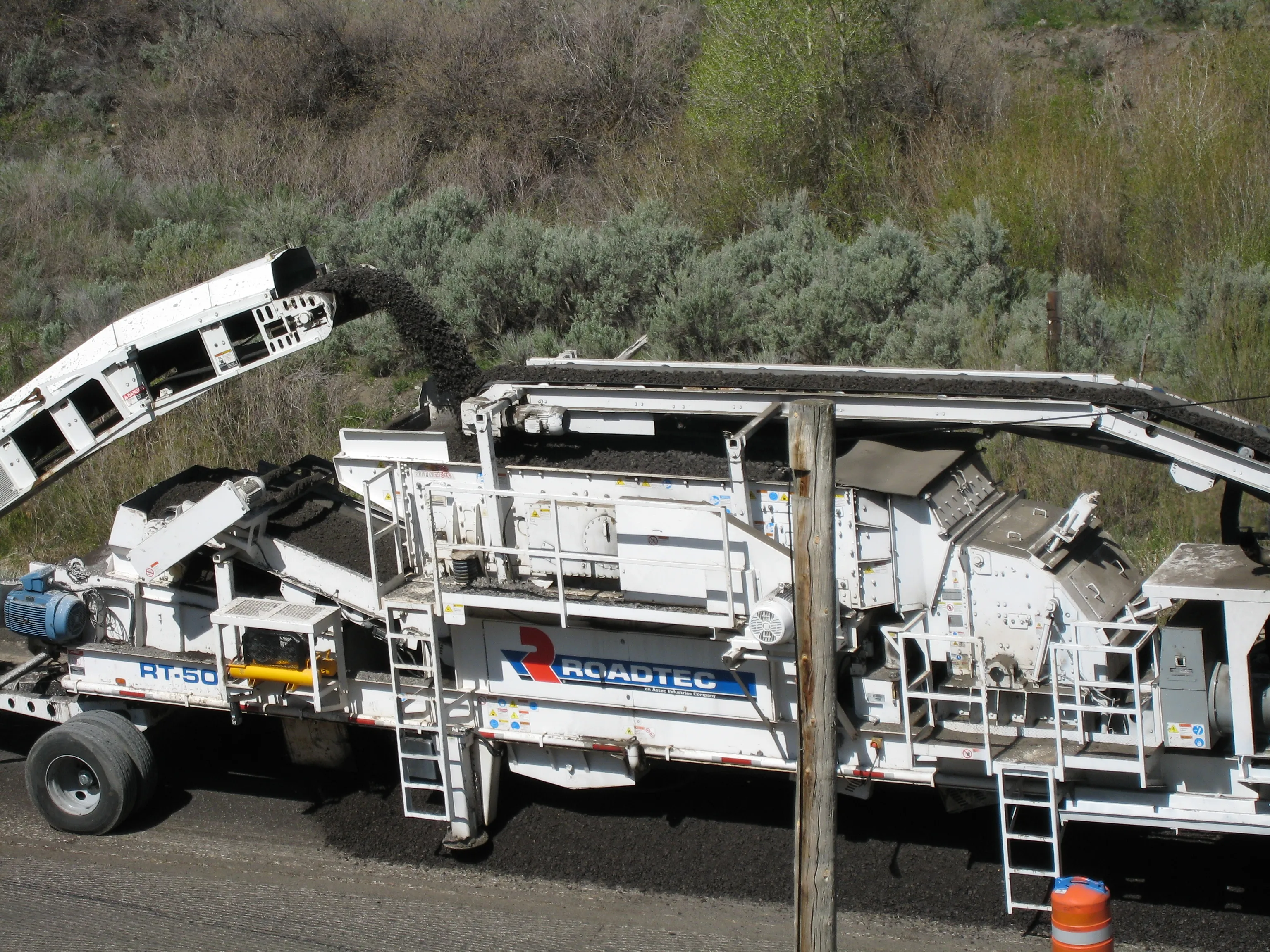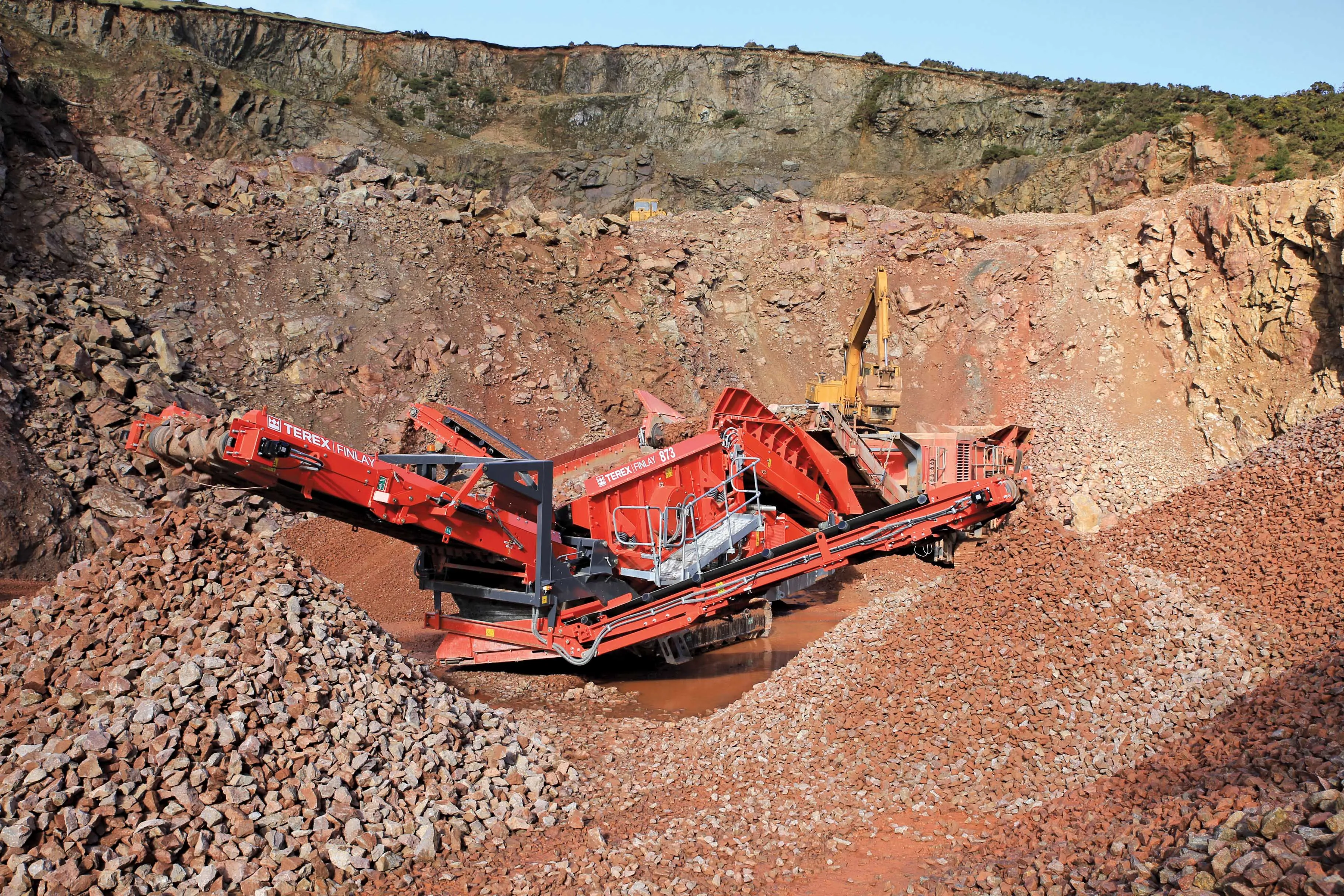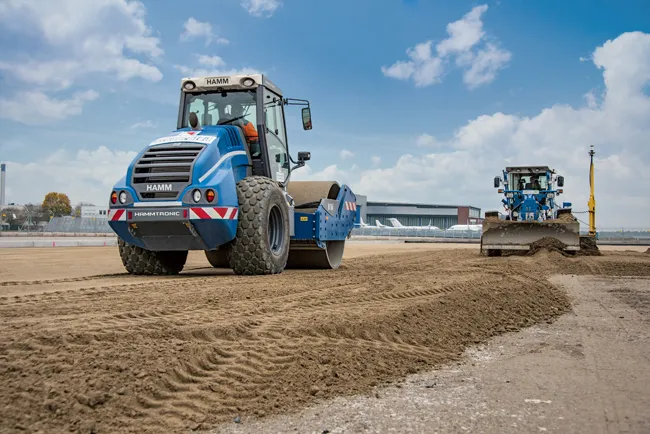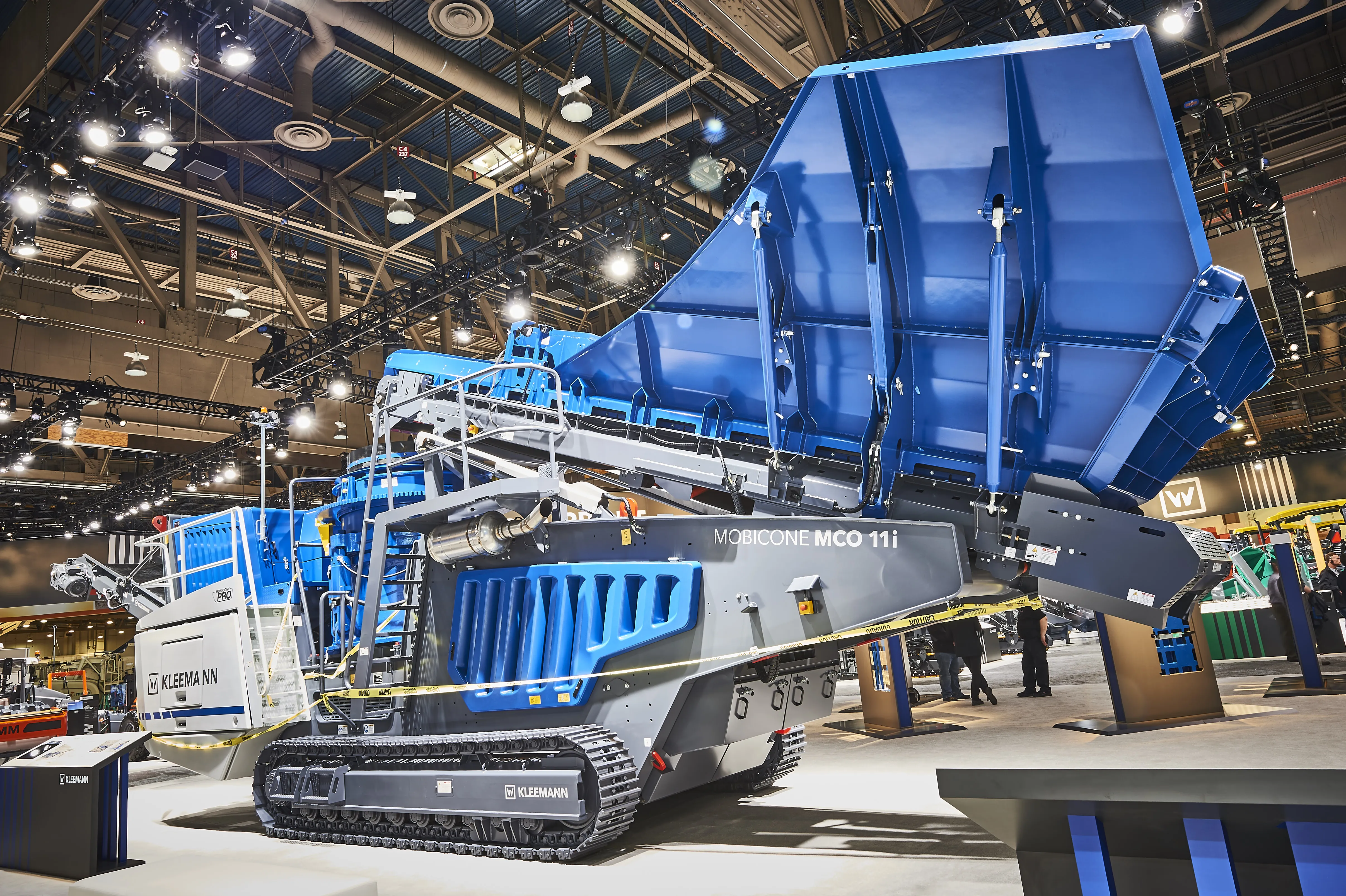The Roadtec RT-500 is a mobile trailer that can be pulled and fed by a Roadtec RX-900 milling machine for cold in-place recycling. But it also can be set up on site as a central cold-mix plant, according to the company, based in the US state of Tennessee. The machine features closed loop sizing with an on-board vibratory screen and horizontal shaft impact crusher. The process is designed to prevent having to pre-process RAP when the RT-500 is used as a cold-mix plant. The RT-500 also has a weigh bridge on b
August 4, 2017
Read time: 3 mins

The 1252 Roadtec RT-500 is a mobile trailer that can be pulled and fed by a Roadtec RX-900 milling machine for cold in-place recycling.
But it also can be set up on site as a central cold-mix plant, according to the company, based in the US state of Tennessee.
The machine features closed loop sizing with an on-board vibratory screen and horizontal shaft impact crusher. The process is designed to prevent having to pre-process RAP when the RT-500 is used as a cold-mix plant. The RT-500 also has a weigh bridge on board for accurate additive injection in the pugmill.
The RT-500 is suited for use in a cold-in-place recycling production train. CIR makes it possible to repair damage to a roadway in one single pass, while reusing up to 100% of the existing material. Savings potentials are not only through material reuse, but also by reducing equipment requirements and through time savings.
With CIR technology, the paving mix is made right at the job site. No haul trucks are needed to run back and forth to the asphalt plant since very little virgin material - if any - is used.
The basic concept of CIR is to remove damaged layers, to process the removed material, and then to place it and compact it to make the new structure. A thin layer of hot mix asphalt or other preservation treatment is placed to serve as the new surface course, which completes the CIR process.
After the cold planer has milled the damaged old pavement layer, it feeds this material into the entry chute of the RT-500. From there the reclaimed material moves onto the double deck screen for separation by size. The low-profile 152cm x 427cm flat screen has fully adjustable amplitude and frequency and can handle all kinds of material. The springs and vibration isolators are designed to help the operation run smoothly as well as quiet.
Material of proper size is allowed to pass through while oversize material is routed to the Horizontal Shaft Impactor (HIS) Crusher. This is then recirculated to the top deck of the screen. All reclaimed material ends up in the 138cm-diameter twin shaft six-foot (1.8m) pugmill mixer.
The 3048 HSI Crusher features a heavy-duty main shaft and bearings. Four rows of hammer bars are part of the patented hammer and wedge design used in the crusher. The AR400 liners are designed to provide wear protection in the crusher. There is a hydraulic access door for maintenance. The shaft and rotor assembly can be removed without press fits or keys.
The finished mix is either discharged into a windrow or conveyed straight into the paver hopper.
The computer-controlled additive system meters up to three additives, such as emulsion or foamed liquid asphalt cement, slurry and water, depending upon the mix formula. Data flows from the belt scale located between the screen and the pugmill mixer to the emulsion metering system, which is designed to ensure that correct amounts of additives are mixed in the aggregate at all times. Spray and return valve operation is also computer-controlled.
Ar desired intervals, the RT-500’s computer logs all production data which then can be downloaded for a complete history report. This includes rates of all materials used, date, time, distance or station and speed. Data can be shown in either metric or English units.
A larger eight-foot (2.4m) pugmill is available as well as various options to customise the Roadtec RT-500 mobile recycle trailer to fit a contractor’s needs.
But it also can be set up on site as a central cold-mix plant, according to the company, based in the US state of Tennessee.
The machine features closed loop sizing with an on-board vibratory screen and horizontal shaft impact crusher. The process is designed to prevent having to pre-process RAP when the RT-500 is used as a cold-mix plant. The RT-500 also has a weigh bridge on board for accurate additive injection in the pugmill.
The RT-500 is suited for use in a cold-in-place recycling production train. CIR makes it possible to repair damage to a roadway in one single pass, while reusing up to 100% of the existing material. Savings potentials are not only through material reuse, but also by reducing equipment requirements and through time savings.
With CIR technology, the paving mix is made right at the job site. No haul trucks are needed to run back and forth to the asphalt plant since very little virgin material - if any - is used.
The basic concept of CIR is to remove damaged layers, to process the removed material, and then to place it and compact it to make the new structure. A thin layer of hot mix asphalt or other preservation treatment is placed to serve as the new surface course, which completes the CIR process.
After the cold planer has milled the damaged old pavement layer, it feeds this material into the entry chute of the RT-500. From there the reclaimed material moves onto the double deck screen for separation by size. The low-profile 152cm x 427cm flat screen has fully adjustable amplitude and frequency and can handle all kinds of material. The springs and vibration isolators are designed to help the operation run smoothly as well as quiet.
Material of proper size is allowed to pass through while oversize material is routed to the Horizontal Shaft Impactor (HIS) Crusher. This is then recirculated to the top deck of the screen. All reclaimed material ends up in the 138cm-diameter twin shaft six-foot (1.8m) pugmill mixer.
The 3048 HSI Crusher features a heavy-duty main shaft and bearings. Four rows of hammer bars are part of the patented hammer and wedge design used in the crusher. The AR400 liners are designed to provide wear protection in the crusher. There is a hydraulic access door for maintenance. The shaft and rotor assembly can be removed without press fits or keys.
The finished mix is either discharged into a windrow or conveyed straight into the paver hopper.
The computer-controlled additive system meters up to three additives, such as emulsion or foamed liquid asphalt cement, slurry and water, depending upon the mix formula. Data flows from the belt scale located between the screen and the pugmill mixer to the emulsion metering system, which is designed to ensure that correct amounts of additives are mixed in the aggregate at all times. Spray and return valve operation is also computer-controlled.
Ar desired intervals, the RT-500’s computer logs all production data which then can be downloaded for a complete history report. This includes rates of all materials used, date, time, distance or station and speed. Data can be shown in either metric or English units.
A larger eight-foot (2.4m) pugmill is available as well as various options to customise the Roadtec RT-500 mobile recycle trailer to fit a contractor’s needs.









